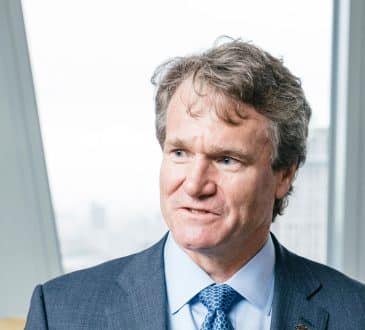5 Key Stress Management Tips Every Leader and CEO Should be Using

Life as an executive has some incredible benefits but it also has its fair share of stressors which gone unmanaged, can lead to some truly undesirable results. Before I became an entrepreneur in the speaking and media space, I was a practicing clinician in healthcare. During that time I noticed a common theme with many of the executives and leaders that I saw as patients.
Many of them, some unknowingly, were sacrificing their well-being for what they thought would make them successful in their careers. Long hours, constant high-pressure situations, lots of time sitting behind a desk and repeated dinners out where the food and drinks were flowing had taken their toll. For some of them, their physical health was in decline. For others, their mental health was suffering. And for many, it was all of the above.
A key thing to recognize is that your well-being is a critical component of your success, your leadership capabilities, and your job performance. Don’t fall into the trap of thinking that you need to sacrifice parts of yourself to be successful as an executive or leader. The opposite is actually true. When you prioritize yourself, you will be able to show up as the best version of yourself at work and in life. You will also be setting a positive example for your team and contributing to an empowering healthy company culture.
After a keynote talk that I gave to a group about executive well-being, it was exciting to hear the dialogue happening between the different members of the audience. New ideas were being passed around about how they could make employee wellness a part of company culture. As a leader, when you make wellness a key component of your work/life everyone benefits! On that note, here are five key tips to help you manage stress and feel your best in your personal and professional life.
- Mindset – How you talk to yourself and how you interpret the events in your life influences how you think, how you feel, how you act and how you respond to others. A great place to start when you are wanting to work on having a more empowering growth mindset is to build self-awareness. Get curious about yourself and start to notice some of your habits and patterns in a non-judgmental way. Do you have limiting beliefs about yourself in certain areas? Once you identify some places where you feel stuck, you can intentionally choose a new path. Reframing can be a helpful practice to start to allow new perspectives to emerge. For example, if you find yourself thinking and believing “I am bad at this” notice how that makes you feel. Now what if you chose the perspective of “I am still learning, and I can improve here if I choose to.” The first statement is restrictive and unproductive while the second opens the door for growth.
- Boundaries – When I was talking with a top executive about boundaries on my Live Greatly podcast, they said something that really resonated which was, no one is going to set boundaries for you. Now, at the end of the day there isn’t an exact guidebook on the perfect methods needed here because each situation is unique, but it is up to you to create healthy boundaries between your personal and professional life. You need to prioritize and set time aside for what is meaningful to you. It can be helpful to look at some of the habits you have that make it tough for you to have boundaries. For example, if you always respond to emails at 9pm, people are going to expect you to respond late at night. After I gave a keynote talk where I touched on the importance of setting boundaries, I stepped backstage and was approached by the event planner who thanked me and told me that she had a realization during my talk. She said that she sets herself up for working late into the night because she always brings her laptop home with her. She realized that if she just leaves her laptop in the office, she would be able to have healthier boundaries. Once you recognize areas where you need more boundaries it is time to act and have the necessary conversations to make sure you and your team are on the same page.
- Movement – Are you behind a desk a lot of the day? Sitting most of the day is not conducive to optimal physical and mental health. Exercise and movement have been shown to support our minds and bodies and they are great stress relievers. When I was practicing in Integrative Psychiatry, exercise was something that I would “prescribe” to patients who were feeling stressed or overwhelmed and it can have a big impact. Aim to incorporate movement into every workday and use technology to help remind you. Think about taking a work call while on a walk, have a walking meeting, or get up to stretch and move every 30 minutes or so. Make sure to talk to your healthcare provider about any exercise restrictions.
- Micro Self-Care Breaks – I don’t have time is a common excuse for not incorporating stress management and self-care into the day. That is one of the reasons I love these mini self-care breaks. Everyone can find 3-5 minutes here and there throughout the day! Stress tends to build up throughout the day, especially if you have back-to-back meetings so regular breaks are imperative for your health and performance. When I would be seeing patients back-to-back, I needed quick and effective ways to reset in between visits. Some of my favorites included a quick guided imagery exercise where I closed my eyes and visualized one of my favorite vacation spots incorporating all my senses. Another was a quick body scan where I would relax my muscles starting at the top of my head and going down to my toes. There are so many options here, but the key is to make regular self-care breaks a part of your everyday work/life.
- Community – Being an executive and leader has the potential to be isolating. Having healthy relationships and connection in our lives is incredibly important for our health and happiness. Building these strong relationships takes effort and some vulnerability. Prioritize the relationships in your life with the people that are meaningful to you. If there is someone that you haven’t connected with in a while that you miss, reach out to them. Use technology to help you stay in touch and set up regular get togethers. Build community in the workplace with skills like mindful active listening and team building events. Consider joining a group with other leaders or executives who are going through similar challenges. Consider getting additional support if needed from a coach or healthcare provider.
Being an executive and leader is a wonderful opportunity to have a powerful impact and by incorporating these 5 things into your everyday work and life, you will be setting yourself up for optimal health, happiness, and success. If you would like to learn more about my work including my speaking topics and podcast you can do so here.
Disclaimer: This content purely represents the opinion of the author and is not medical advice or treatment recommendations. Always talk to your healthcare provider about recommendations specific to you.
Written by Kristel Bauer.
Have you read?
World’s trendiest countries, 2023.
World’s Richest People (Top Billionaires, 2023).
Best Apps for Reading News for Google’s Android and Apple’s iOS.
Music successful CEOs and C-level executives listen to.
Which are the healthiest countries in the world for 2023?
Ready to join the CEOWORLD magazine Executive Council– Find out if you are eligible to apply.
Add CEOWORLD magazine to your Google News feed.
Follow CEOWORLD magazine headlines on: Google News, LinkedIn, Twitter, and Facebook.
This report/news/ranking/statistics has been prepared only for general guidance on matters of interest and does not constitute professional advice. You should not act upon the information contained in this publication without obtaining specific professional advice. No representation or warranty (express or implied) is given as to the accuracy or completeness of the information contained in this publication, and, to the extent permitted by law, CEOWORLD magazine does not accept or assume any liability, responsibility or duty of care for any consequences of you or anyone else acting, or refraining to act, in reliance on the information contained in this publication or for any decision based on it.
Copyright 2024 The CEOWORLD magazine. All rights reserved. This material (and any extract from it) must not be copied, redistributed or placed on any website, without CEOWORLD magazine' prior written consent. For media queries, please contact: info@ceoworld.biz
SUBSCRIBE NEWSLETTER








